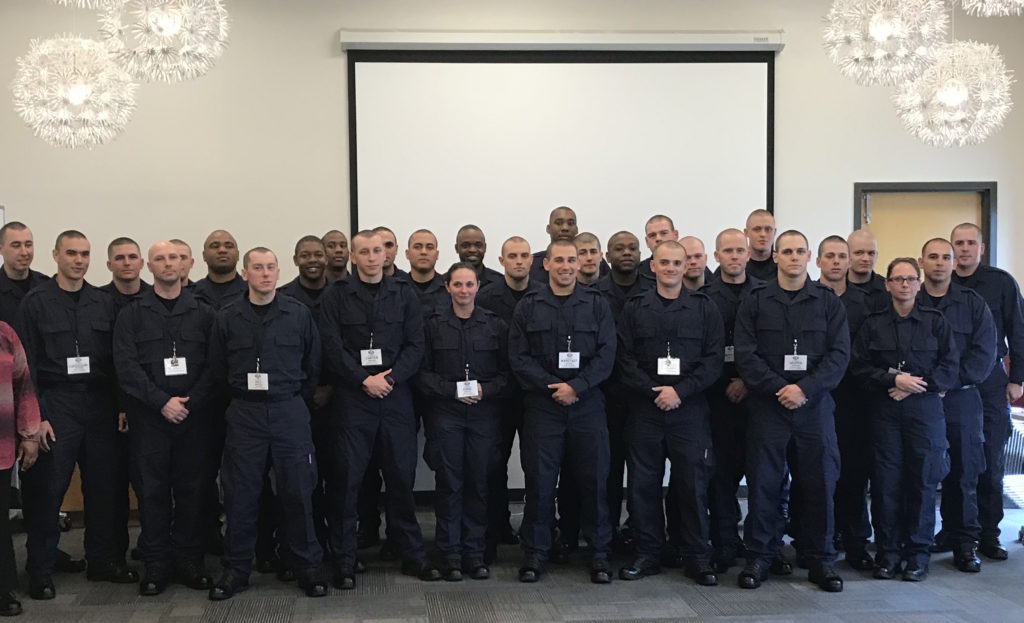
Nashville’s Police Department is hoping that a recent daylong diversity tour will help its newest cadets be better, more empathic officers. Zigzagging the city last week, the recruits heard from the Muslim community, immigrant groups, African American students and LGBTQ leaders.
The Mobile Diversity Seminar, as it’s known, began two years ago as a way to introduce new recruits to some of the city’s more vulnerable communities and give them chance to broker a dialogue.
Over a lunch of chicken and rice at Casa Azafran, a nonprofit community center in South Nashville, conversations veered from where to get the best baklava to what type of trauma education the police academy provided.
Linda Copeland, who works in juvenile justice, had a pointed question to the five cadets sitting at her table.
“I was just curious about your thoughts around just that whole juvenile offender piece,” she said. “Because especially here in Nashville it has just exploded and it makes you think, ‘What in the world is going on?’ “
Metro Police recently launched a
juvenile crime taskforce to combat what they say is a rash of crimes committed by juveniles.
Destiny Zunic, a 22-year-old recruit spoke up. In some ways, she says, she sees herself in these kids. She didn’t have a great family, but she did have others who believed in her — her teammates, her teachers — and that made all the difference.
“Most of them are coming from broken homes, and they don’t feel like they have anyone they can turn to or any support system,” Zunic said. “So I think that our role as an officer, even just that slight interaction with kids and showing them, ‘Hey you can do this and if you can’t let me help you and show that you can,’ will play a huge impact.”
The cadets’ class president, Ryan Ludvigson, says he knows the day’s training is critical for him and the 29 other new recruits who will graduate Nashville’s police academy next month.
“There’s lots of perceptions and whatnot just on all sides,” Ludvigson said. “Implicit bias is what we’re learning about, putting those in check and not letting those hinder our job to serve the members of the community to the best that we can. “
Compared to their months of academy training, it’s an incredibly brief, whirlwind introduction to Nashville’s cultural communities, who often feel they’re on the receiving end of officers’ implicit bias. But the organizers hope it will, at least, give the recruits a chance to hear these perspectives before they hit the streets.


